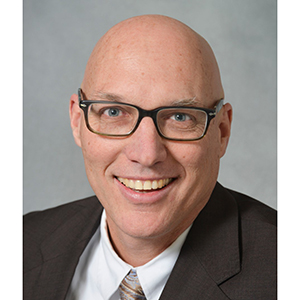ChE Seminar: Dr. John W. Weidner
| Event Date: | November 19, 2019 |
|---|---|
| Speaker: | Dr. John W. Weidner |
| Speaker Affiliation: | University of Cincinnati |
| Time: | 3:00-4:15 pm |
| Location: | FRNY G140 |
| Open To: | Attendance required for PhD students |
| Priority: | No |
| School or Program: | Chemical Engineering |
| College Calendar: | Show |
Dr. John W. Weidner
Dean of the College of Engineering & Applied Science
University of Cincinnati
 Dr. John W. Weidner
Dr. John W. Weidner
Dean of the College of Engineering & Applied Science
University of Cincinnati
Part of the Fall 2019 Graduate Seminar Series
Mathematical Modeling of Electrochemical Systems
Abstract:
In order to understand and accurately predict the behavior of electrochemical materials, devices, and systems, it is necessary to develop sophisticated mathematical models that consider, for example, transport processes, electrochemical phenomena, thermal and mechanical stresses, and structural changes during operation. This insight aids in the design and operation of electrochemical systems for a particular application. This talk will review some of the mathematical models that we have developed to predict the behavior of electrochemically active materials, fuel cells, electrolyzers, and batteries. In particularly, I will discuss the mathematical models we have developed to better understand the effect of volume change on the behavior of batteries. There are many models in the literature that can predict the electrochemical performance of batteries (e.g., voltage versus time) under a variety of operating (e.g., current) and design (e.g., electrode thickness) conditions. However, existing models do not consider how stresses can build up in the system as the expanding porous electrode is being constrained by the battery casing. Here I show predictions of the dimensional and porosity changes in a porous electrode caused by volume changes in the active material during intercalation (e.g., lithium into carbon or silicon). Porosity and dimensional changes in an electrode significantly affect the resistance of the battery during cycling. In addition, volume changes generate stresses in the electrode, which can lead to premature failure of the battery. We have coupled material conservation equations with the mechanical properties of the porous electrode to derive governing relations that link dimensional and porosity changes to stresses that occur during the intercalation process. The stress-strain relationships used in this model, which are needed to predict porosity and dimensional changes, have been established by examining the similarities between thermal rock expansion (e.g., the exchange of thermal energy with the rock) and electrode expansion due to intercalation. These models are used to help guide battery development in large-scale electric vehicles.
Bio:
John W. Weidner is Dean of the College of Engineering and Applied Sciences at the University of Cincinnati. Prior to being appointed dean in August of 2019, he was a professor and department chair of chemical Engineering at the University of South Carolina (UofSC). He received his BS degree in chemical engineering from the University of Wisconsin-Madison in 1986 and his PhD in chemical engineering from NC State University under the direction of Dr. Peter S. Fedkiw in 1991. That same year he joined UofSC as an assistant professor as part of their Center for Electrochemical Engineering. In the summer of 1992 he worked with Dr. Gerald Halpert as a NASA Summer Faculty Fellow in the Energy Storage Systems Group at the Jet Propulsion Laboratory in Pasadena modeling nickel batteries. He spent a sabbatical at the University of California-Berkeley working with Professor John Newman in the fall of 1999 again studying the nickel electrode and at Los Alamos National Laboratory working with Dr. Tom Zawodzinski in the spring of 2000 modeling impedance in porous electrodes. His next sabbatical in 2007-08 was spent at the Fraunhofer Institute for Solar Energy Systems in Freiburg, Germany developing advanced catalysts for proton exchange membrane (PEM) electrolyzers for Dr. Christopher Hebling’s hydrogen technology group.
Professor Weidner has published 115 refereed journal articles and contributed to over 200 technical presentations in the field of electrochemical engineering. His research group has created novel synthesis routines for battery materials and electrocatalysts, and they have used a variety of electroanalytical techniques and developed sophisticated mathematical models to advance the fields of electrochemical reactors, advanced batteries, electrochemical capacitors, fuel cells, and electrolyzers. Professor Weidner received the Energy Research Award from the E.ON International Research Initiative (2008) and the Research Award from the Energy Technology Division of ECS (2010), both for his work on solar-hydrogen production. From UofSC, Professor Weidner received the Educational Foundation Award for Research in Science, Mathematics and Engineering (2013) and the Breakthrough Leadership in Research Award (2016). In 2016 Professor Weidner received the Education Leader Award at the Energy Inc. Summit in Charlotte, NC for his educational activities around renewable energy. Dr. Weidner was inaugural editor of ECS Transactions and past Technical Editor for the Journal of the Electrochemical Society. He is currently an ABET Program Evaluator for the American institute of Chemical Engineers (AIChE). He is a Fellow of ECS and AIChE.
